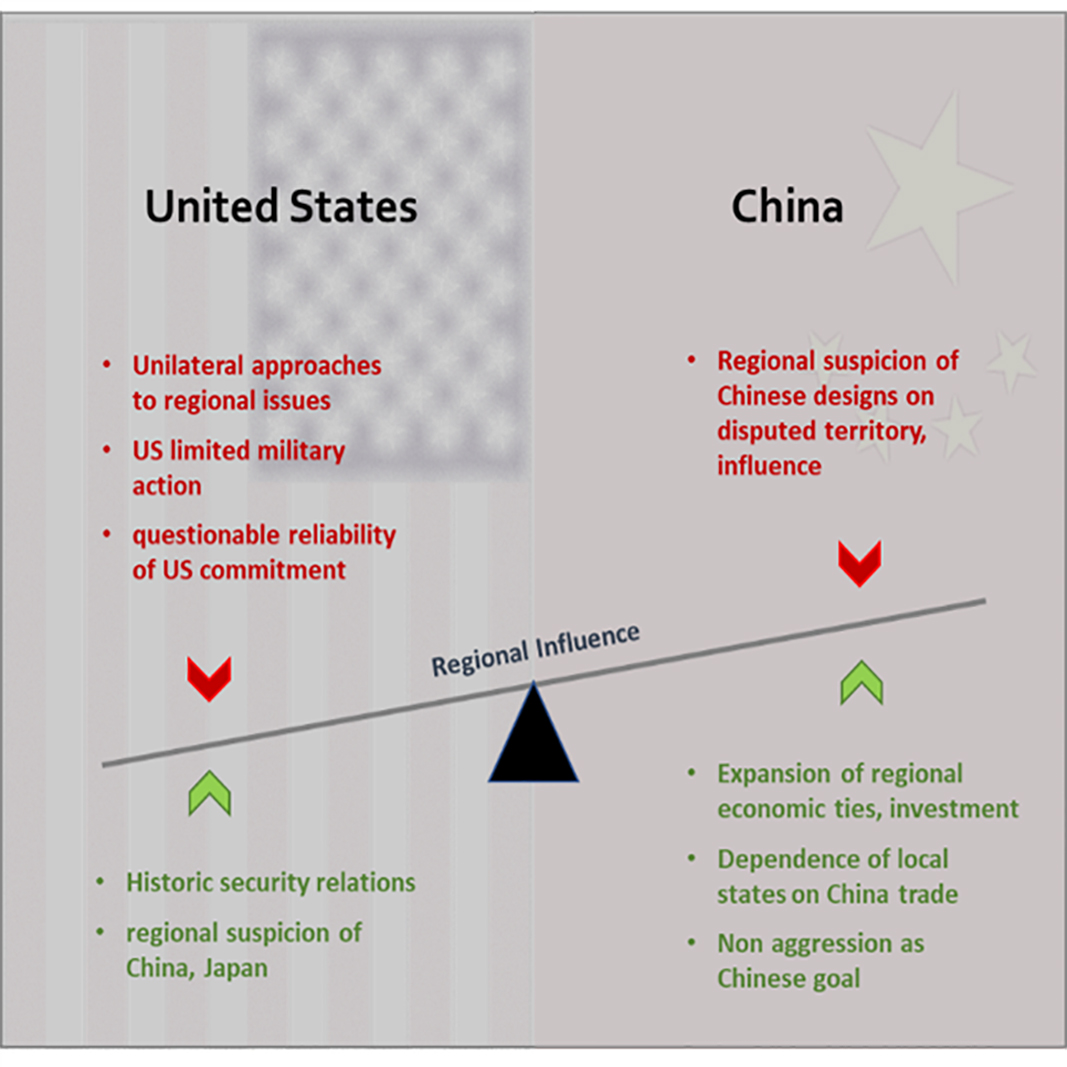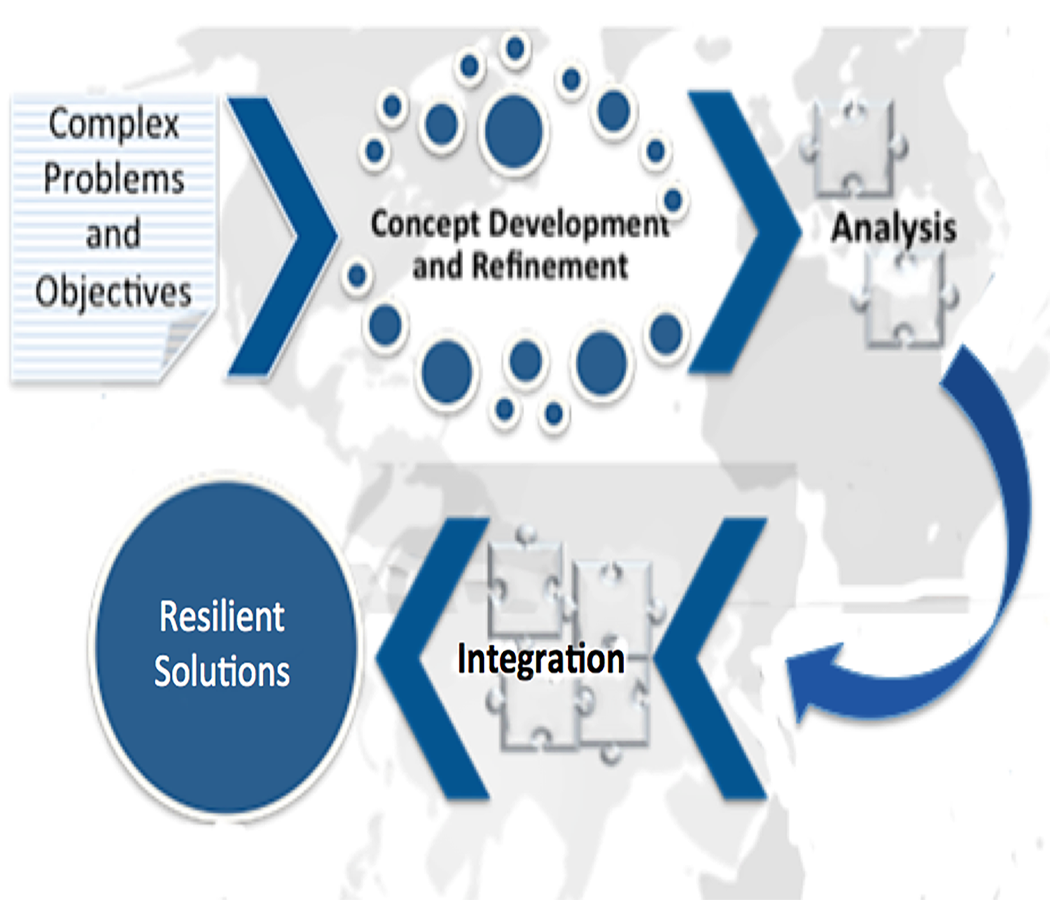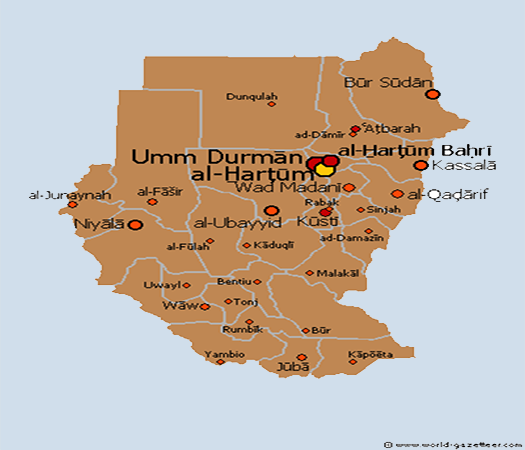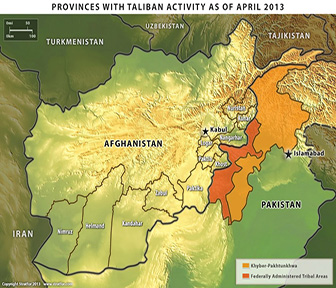OUR SOLUTIONS
Help our clients understand people and their behaviors in order to make better and more reliable decisions
NSI PATHWAYS – RECONCILIATION AND REINTEGRATION
This NSI Pathways analysis examines the degree of overlap between reconciliation and reintegration markers, along with an assessment of the status of these markers in Afghanistan.
IRC ANALYSIS TOOL APPLIED TO WESTERN PACIFIC REGION
IRC (Interest-Resolve-Capability) analysis finds that retaining regional influence in the context of Chinese economic might and ambition requires significant change in the US’ approach to the region.
WHAT THE KIMS TELL US ABOUT KIM JONG-UN’S WORLDVIEW
This quantitative discourse analysis of each of the DPRK’s leaders was conducted in historical frameworks in order to assess how Kim Jong-un is likely to negotiate relative to his father and grandfather.
STRATEGIC MULTILAYER ASSESSMENT
NSI has been providing analytical and programmatic support to the US Defense Department Strategic Multilayer Assessment (SMA) office for over a decade working the most complex and urgent national security issues affecting our military and intelligence agencies.
MIDDLE EAST INFLUENCES AND UNREST
For the past several years NSI has been providing the US Special Operations Command Central Commander with a variety of research and analyses focused on the numerous conflicts, unrest, and the broader influences and regional dynamics of the central Middle East.
ISRAELI-PALESTINIAN SECURITY REFORM
NSI participated in a collaborative review for the US Security Coordinator for Israel and the Palestinian Authority that evaluated strategic risks and identified knowledge gaps in future security environments and their implications to Palestinian security sector reform efforts.
STABILITY MODEL (StaM) ASSESSMENTS
NSI has applied its StaM conceptual framework and analytic methodology to Pakistan, Afghanistan, Nigeria, West Bank, and Dhaka Bangladesh providing decision-makers with a rich contextual understanding of the social, economic and governing stability dynamics.
STATE AND NON-STATE DETERRENCE
NSI has conducted research and analyses for US Strategic Command on concepts of nuclear strategy, how to use models/methods to better understand issues in deterrence, non-proliferation, and assurance, as well as development of decision analysis and planning tools.
VIOLENT EXTREMISM & RADICALIZATION
NSI has conducted research and analyses on deterring or influencing violent extremist organizations; assessing nuclear smuggling and weapons of mass destruction terrorism scenarios; and modeling and assessing ethnic conflict, repression, insurgency and social strife.
HOLISTIC ENGAGEMENT ACTIVITIES RANKING IN AFRICA
NSI developed a decision analysis tool termed Holistic Engagement Activity Ranking Tool (HEART) to help planners and analysts from US Africa Command assess and compare command engagement activities and events over multiple decision criteria and timeframes.
DISCOURSE ANALYSIS OF LEADER SPEECHES AND COMMENTARY
NSI has applied its discourse analysis to efforts ranging from measuring leaders’ cognitive complexity that precede armed conflict, rhetoric in nuclear and missile testing and peace negotiations, behavioral intentions of leadership, and sentiment in social media commentary.
STRATEGIC ASSESSMENT OF THE SUDAN AND HORN OF AFRICA
NSI conducted a multi-model strategic analysis of the Sudan for US Central Command that addressed root causes of the humanitarian crisis, regional effects Sudan is having on the Horn of Africa, and conditions allowing Sudan to become a harbor for nefarious activity.
COUNTERING ILLICIT DRUG TRAFFICKING
NSI conducted both organizational and social network analyses for a Navy counter-narcotics and trafficking program that automatically extracted entities, resolved variants, and related them to watch-log entries and the associated case or contact movement alert.
US | NATO AND RUSSIA STRATEGIC INTERESTS
NSI examined future political, security, societal and economic trends to help US European Command planners determine where US and NATO interests were congruent or in conflict with Russian interests as well as leverage points and their impact relative to Russian interests.
SOCIAL MEDIA AND POLITICAL EFFECTS
NSI conducted a literature review of the intersection of social media and political events for an Intelligence client and found that social media influences on political events varies considerably and will continue as the sophistication of technology and its users evolves.
RICH CONTEXTUAL UNDERSTANDING OF PAKISTAN | AFGHANISTAN
NSI planned, managed, and executed numerous social science modeling and analyses efforts for two projects focused on providing the International Security Assistance Force (ISAF) Commander with a rich contextual understanding of the Pakistan and Afghanistan region.
STRATEGIC CONFLICT & CONVERGENCE DRIVERS IN ASIA-PACIFIC REGION
NSI conducted research and analyses for US Pacific Command identifying drivers of conflict and convergence in the Asia-Pacific region spanning the next two decades examining socio-political and economic trends and where US and Chinese interests converge or conflict.
SOUTH ASIA FRAGMENTATION AND MUDDLING PATHWAYS ASSESSMENT
NSI conducted a fragmentation pathways analysis of Pakistan for the Joint Staff to determine what path it was on by creating theoretical propositions about the nature of pathways, tested these against 12 historical cases, and applied the refined pathways to Pakistan.
BRAND-SPECIFIC CUSTOMER SENTIMENT
NSI has been providing a major entertainment company with analytics to measure and track customer sentiment, identify and prioritize emerging issues, and optimize customer service operation standards, based on its unique language of brand, its customers, and its culture.
BUSINESS INTELLIGENCE ANALYTICS
NSI staff are on site at a global Fortune-100 company providing increased analytical depth and rigor to business intelligence objectives including maximizing revenue per customer, detecting and preventing attrition, enhancing brand usage, and improving product design.
FORECASTING BRAND USAGE & DEMAND
NSI is providing a digital entertainment software developer and publisher company with regular forecasts of the maximum concurrent online customers using their products at a given time so that optimal server capacity can be resourced a priori to meet customer demand.
MAPPING COMMUNICATION FLOW
NSI utilized social network and business analytics techniques to quantify, diagnose, and improve communications for a voice of the customer team within a a major entertainment company enabling rapid response to customer issues and brand performance concerns.
IMPROVING WAIT TIMES
NSI used non-linear regression and differential calculus working with senior leadership of a 2000+ FTE call center to adjust service levels and balance wait times with time spent meeting customer needs, resulting in improved customer satisfaction even with longer wait times.
PREDICTIVE MODELING
NSI developed predictive models of brand usage that are accurate to within 5%, and have been used to estimate peak usage patterns and inform capacity planning decisions to help avoid excess overcapacity costs, and customer dissatisfaction from under-capacity.
CONSUMER BEHAVIORAL SEGMENTATION
NSI conducted a segmentation analysis based on consumer behaviors and situational factors, rather than fixed demographics or attitudes, to develop marketing strategies and approaches tailored for consumers different needs and purchasing habits at different times.
THEMATIC ANALYSIS OF VIDEO CONTENT
NSI conducted a thematic analysis of short promotional videos and teasers alongside the fans’ comments to each video for a large entertainment company to explore patterns in the video content and the customers’ responses to identify what customers are saying and why.
BARRIER IDENTIFICATION AND REMOVAL
NSI has applied a barrier analysis to a large organization to identify, prioritize, and remove fear barriers from different functions and departments that built barriers to help protect silos and entitlements and their turf while creating harm for the overall organization.


























